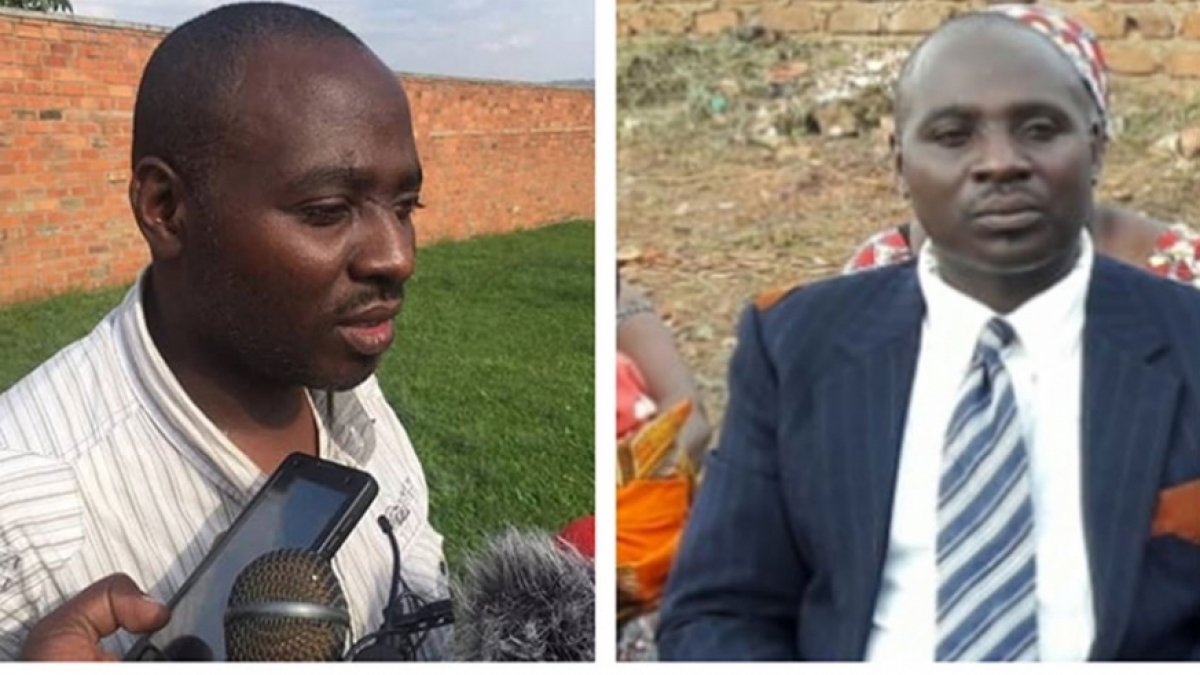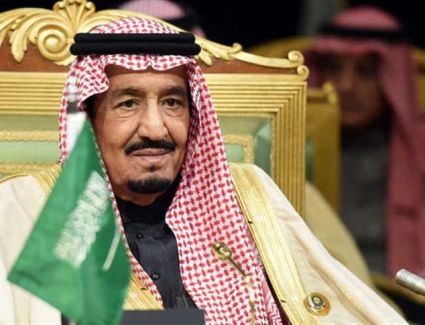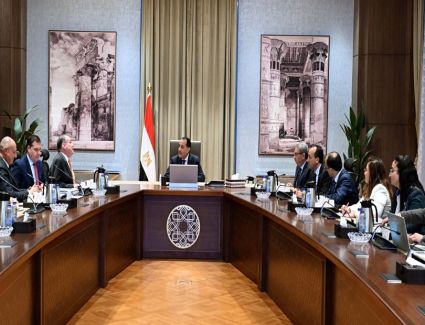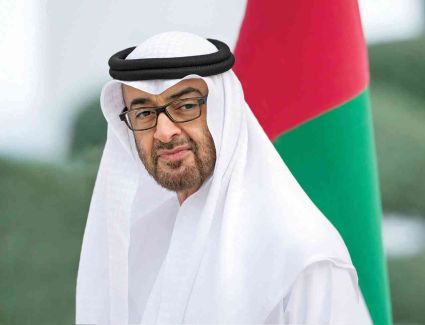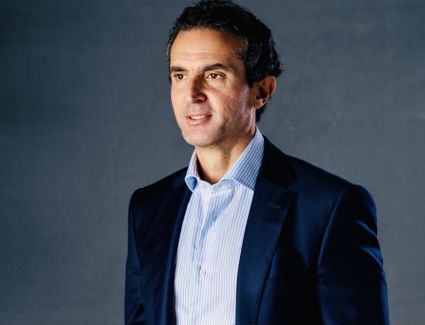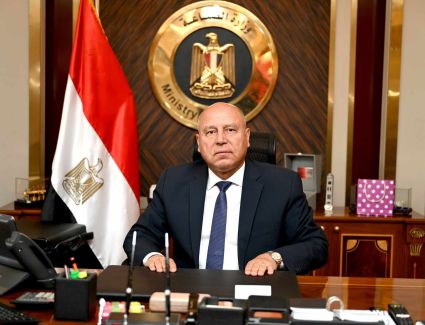Silas Hategekimana, a Rwandan man who spent weeks enduring physical and psychological torture in Uganda’s Chieftaincy of Military Intelligence (CMI)’s torture chambers earlier this year, has succumbed to the effects of the cruelty he was subjected to during his detention.
He had spent 18 days in detention in Kampala before he and 19 other Rwandan torture victims – most of them members of the evangelical ADEPR Church – were dumped at the border with Rwanda on June 12.
Unfortunately, Hategekimana, 43, ultimately passed on over the weekend from the effects of torture, which he had testified about shortly after he arrived from Uganda.
His family members said that a few days after his arrival, he started to develop serious health complications.
“He began to experience loss of breath, pain in the chest and in his right abdominal side,” a relative said.
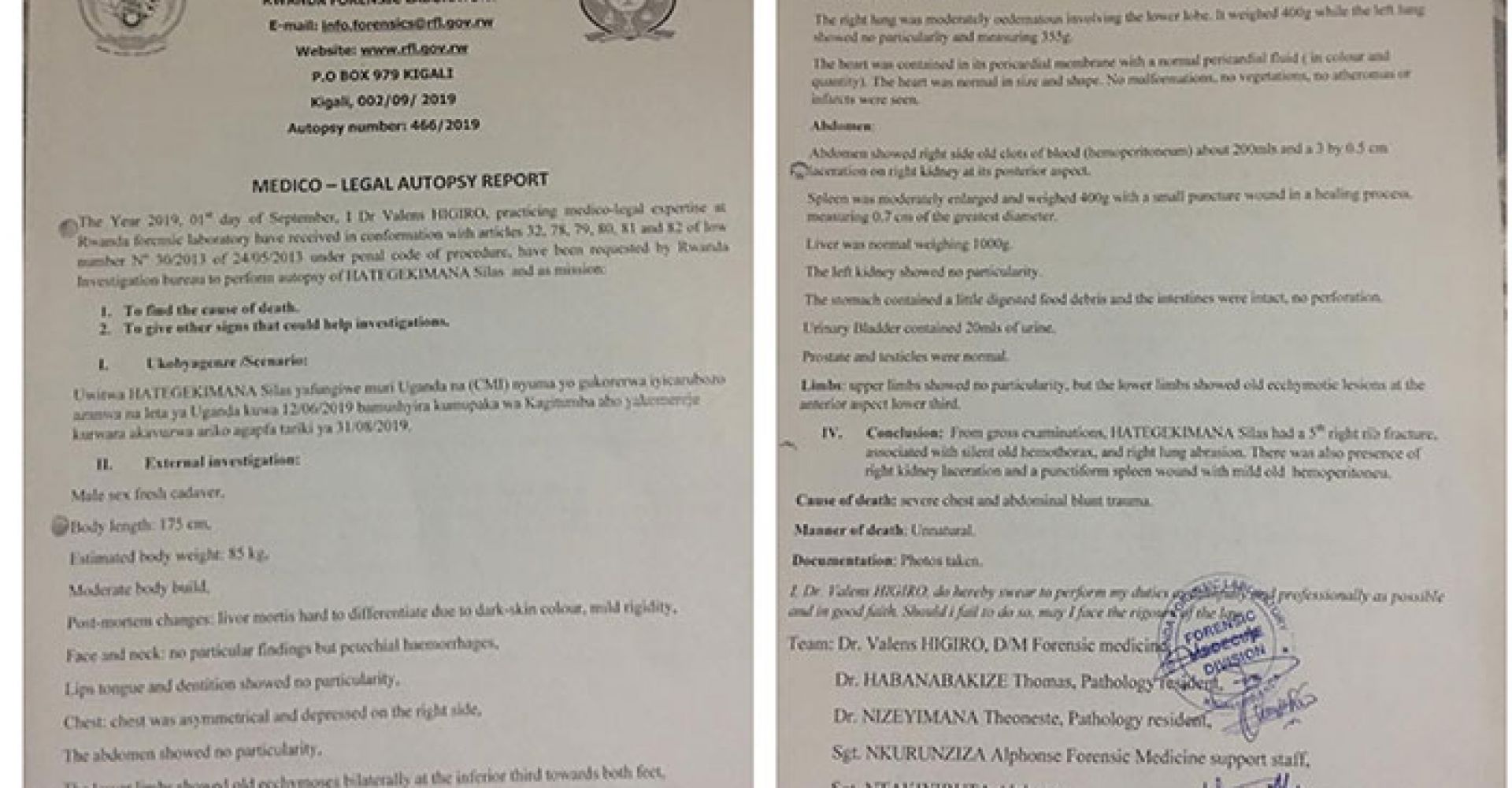
He was subsequently admitted at Kacyiru Hospital, from where he was transferred to Rwanda Military Hospital-Kanombe for further examination. He was complaining of chest pain.
At RMH, a cardiologist examined him and recommended an X-ray scan, to be done at Legacy Clinics.
Autopsy report
But as he was being transported to Legacy Clinics, which is located about 2km from the military hospital, on Saturday, August 31, his condition rapidly deteriorated and passed away.
An autopsy report, whose copy The New Times obtained, concluded that Hategekimana “had a 5th right rib fracture associated with silent old hemothorax, and right lung abrasion. There was also presence of right kidney laceration and a punctiform spleen wound with mild old hemoperitoneu.”
The report, signed by five experts including two pathologists, describes the manner of his death as “unnatural” and states the cause as “severe chest and abdominal blunt trauma.”
Hategekimana is survived by his wife Annonciata Nyirahabimana and three children – two daughters and a son.
Nyarahabimana described her deceased husband as a committed father, husband and Christian.
“He was only interested in volunteering for his church and providing for his children,” said a grieving Nyirahabimana, wondering why her husband was arbitrarily arrested and inflicted with deadly injuries in Uganda.
The bereaved family lives in Gatenga, Kicukiro District.
Hategekimana, who has his family’s breadwinner, also leaves behind his mother.
Abduction, torture
In Kampala where he first arrived in 2009, Hategekimana made a living from operating a motorcycle business before he was abducted on May 25, this year.
The abductors turned out to be CMI operatives and were working closely with agents of Rwandan terrorist outfit RNC of fugitive Kayumba Nyamwasa, Hategekimana said in an emotional testimony in June.
The CMI men turned up at a church in the Kibuye neighbourhood of Kampala and arrested Hategekimana along with other members of the congregation.
The CMI agents did not identify themselves when they were arresting them, he said.
They were bundled into a waiting vehicle with tinted windows before their captors put hoods over their faces and sped off.
What followed was inhumane treatment by Ugandan government security agents, working with elements “who spoke Kinyarwanda fluently”.
He described as horrific his experience at the hands of CMI and RNC operatives.
They were driven to CMI Headquarters in Mbuya, a Kampala suburb.
“At Mbuya they first confiscated everything of value we had on us; phones, money, wallets, and ordered us to take our shoes and belts off,” Hategekimana recalled.
Then they were pushed inside a “sinister looking corridor.”
“In that corridor the three of us weren’t able to sleep for more than a few hours each day. It was cold and there was no mattress and we had nothing to cover ourselves with, day and night.
“When they brought food, smelly kawunga (maize meal), mixed with dirty-looking watery beans, they just threw the shabby plates on the floor and walked out. “We ate that horrible food once a day, most of the time we starved.”
One Rwandan who also endured torture in the same place told journalists earlier this year that “there are always shouts and cries emanating from the basement; some people are almost crazy with agony.”
Their crime? A distraught Hategekimana told The New Times back in June: “They accused us of being Rwandan spies, claiming that ADEPR was a “Rwandan spying organisation, but we told them that was never what we did; we only prayed and served God.”
Hategekimana and his colleagues are among hundreds of Rwandans who have increasingly been arrested and subjected to torture by Ugandan security, over false accusations of espionage or illegal entry. Many have been released without trial, but hundreds others remain in detention centres – some ungazetted – with no access to consular or legal services.
Pastor John Karangwa, the ADEPR Church’s legal representative, expressed dismay at the accusations of espionage against his church members. “Being a Rwandan in Uganda has practically become a crime and running a Rwandan-registered organisation there a crime too,” Karangwa said in June. ADEPR is headquartered in Rwanda.
While in CMI detention, Hategekimana said, some of their torturers spoke fluent Kinyarwanda; and that between beatings they would try to force him and other victims to confess that they were “spying for Kigali”.
He said CMI interrogators, together with RNC agents, beat him severally with rifle butts, and was repeatedly forced to bend and put his head between his legs.
At one point, the Kinyarwanda-speaking tormentors, he said, tried to recruit him into RNC rebels.
“They told me I had to join to fight Rwanda, but I told them at my years (43) I didn’t have the energy for that and, besides, why would I fight my country which has done nothing wrong?”
That would prompt more beatings, he said.
More than two weeks after his arrest, he was suddenly transferred to the Kireka CMI facility, which also serves as a halfway house to release.
He said that his captors, perhaps realising that he would never be of much use to them even if he were to be an RNC fighter owing largely to his deteriorating condition as a result of sustained torture, must have decided to drive him up to the Kagitumba Border Post and dump him there empty-handed.
At Kireka, he said, he saw many Rwandans going through the same traumatic experience. “One of the young men had gone mad due to torture, I don’t think he will survive,” Hategekimana told journalists three months before he succumbed to injuries of his own.
Subsequently, Hategekimana and eight other victims sued the Ugandan government at the East African Court of Justice for abuse of their rights and loss of property.
He died before justice could be served.
In August, President Paul Kagame and his Ugandan counterpart Yoweri Museveni signed a Memorandum of Understanding in Luanda, Angola to resolve the standoff between the two countries but the situation has barely improved weeks later.
In March, Kigali issued an advisory against travel to Uganda citing continued harassment, illegal arrests, torture and irregular deportations of Rwandan nationals in Uganda; Kampala’s active support to dissident and terrorist groups bent on destabilising Rwanda, and economic sabotage.
The Rwandan government has said it can only lift the travel advisory after Kampala has released all Rwandan nationals who were arbitrarily arrested and thrown into torture chambers.


